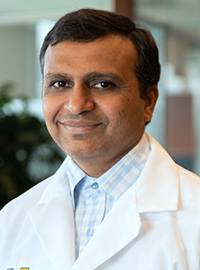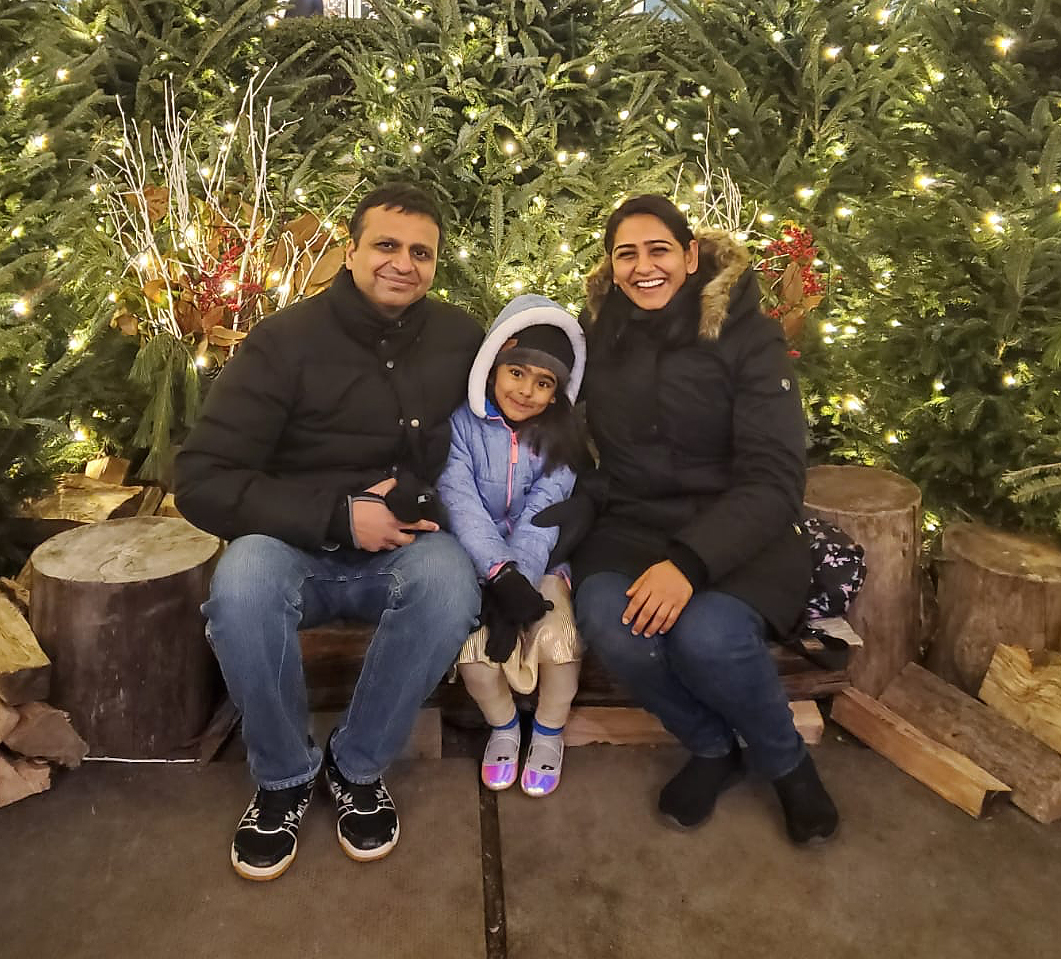Faculty Spotlight: Vipulkumar Dadhania, MBBS
By Lidija Fremeau | January 29 2020 Vipulkumar Dadhania, MBBS, is fascinated with learning. It’s this passion that will keep him evolving in his career. He joined U-M in August of 2019 as a clinical assistant professor in the Department of Pathology. His primary interests are genitourinary pathology and breast pathology. When asked what excites him most about joining the Department of Pathology at the University of Michigan, he easily stated, “I like the expertise of the faculty. This provides me opportunity to learn from world experts not only to make the diagnosis, but also how to approach the cases.”
Vipulkumar Dadhania, MBBS, is fascinated with learning. It’s this passion that will keep him evolving in his career. He joined U-M in August of 2019 as a clinical assistant professor in the Department of Pathology. His primary interests are genitourinary pathology and breast pathology. When asked what excites him most about joining the Department of Pathology at the University of Michigan, he easily stated, “I like the expertise of the faculty. This provides me opportunity to learn from world experts not only to make the diagnosis, but also how to approach the cases.”
Dr. Dadhania describes himself as logical; a thinker and learner. As a child he wanted to be a scientist and discover something. As an adult, he’s looking at slides on a day-to-day basis. He recognizes the difference in his abilities compared to even five years ago. “Before I finished residency, I looked at a pattern and wondered, ‘Where does it fit?’ I really thought I knew everything at the end of my residency. Then as a fellow, you go deeper in one subspecialty, and realize how much you don’t know.” Now Dr. Dadhania is working with residents/fellows and identifies what he’s seeing in the microscope in a “split second,” while they might struggle. “The process of learning fascinates me. It excites me.”
 “If you want to explore pathology, go and see it for yourself. Pathology is different than other medical specialties. It’s a different environment; I don’t deal with patients directly.” Dr. Dadhania offers to students considering a medical profession. As he mentors junior people, he wants them to remember, “We’re looking at tissue to reach a certain diagnosis. Many times you may not know the final answer. Even if we don’t know the answer right away, try to figure out what is the next step? And keep in mind, there is a patient behind that sample. This is why we are doing the work.”
“If you want to explore pathology, go and see it for yourself. Pathology is different than other medical specialties. It’s a different environment; I don’t deal with patients directly.” Dr. Dadhania offers to students considering a medical profession. As he mentors junior people, he wants them to remember, “We’re looking at tissue to reach a certain diagnosis. Many times you may not know the final answer. Even if we don’t know the answer right away, try to figure out what is the next step? And keep in mind, there is a patient behind that sample. This is why we are doing the work.”
Dr. Dadhania values his education and experiences. His parents, he relayed, are not well-educated, but understand that education is very important. They worked hard to provide for him and his brother. He is grateful to his wife, who is likewise supportive. In his earlier years, Dr. Dadhania had to learn work/life balance. The good news is that as he’s progressed in his career, he now sees a stack of slide trays and works through them with less woe and in less time than previously. This allows for more spare time which Dr. Dadhania enjoys filling with meditation or learning computer programming. He is interested in Informatics and hopes to explore it at U-M.
 ON THE COVER
ON THE COVER
 ON THE COVER
ON THE COVER
 ON THE COVER
ON THE COVER
 ON THE COVER
ON THE COVER
 ON THE COVER
ON THE COVER
 ON THE COVER
ON THE COVER
 ON THE COVER
ON THE COVER
 ON THE COVER
ON THE COVER
 ON THE COVER
ON THE COVER
 ON THE COVER
ON THE COVER
 ON THE COVER
ON THE COVER
